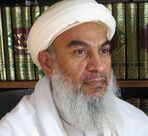Zafar Ishaq Ansari: Glimpses in MemoriamAllah keeps as His friend one who has three characteristics: generosity like that of a river, from which whosoever desires can drink; warm affection like that of the sun, which illuminates every place; and humility like that of the earth, which permits both the good and the wicked to live on it.” This saying of Muʿīn al-Dīn Chishtī (1141-1236), the founder of the eponymous sufi order in the Indian subcontinent, aptly describes Zafar Ishaq Ansari as I found him during the course of a friendship that extended over a quarter century: he was generous of heart, freely giving his time, kind words, and possessions to all; he saw only good in others and lavishly praised them for it, bringing out more good. He was always warm and affectionate, even when he himself was going through difficult times. He was humble; I never heard any boast from him.
|
Muzaffar Iqbal
|
|
© Center for Islamic Sciences. All Rights Reserved.
Designed and Developed by Crescent Marketing Solutions |


